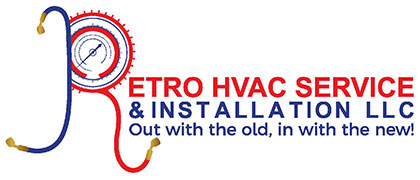
We can all benefit from saving money from time to time. An easy way to do so is by making some energy-efficient changes in your home. Upgrading your HVAC system or installing a smart thermostat, for example, gives you more control over your HVAC system, leading to a more energy-efficient home and more affordable monthly energy bills.
Keep reading to learn about 4 ways you can make energy-efficient home improvements.
1. Install a Smart Thermostat
If you still use an older thermostat and access it manually, think about taking a step toward the future by installing a smart, or Wi-Fi, thermostat – which includes a number of features to improve your home's energy efficiency.
The functionality homeowners enjoy the most is having the ability to access their smart thermostats from wherever by using their smartphone or other smart device. For instance, when you forget to adjust your thermostat before taking a vacation, you can simply take out your smartphone and make the adjustments.
Like a programmable thermostat, a smart thermostat enables you to pre-set your home’s temperature determined by the time of day and day of the week so you’re not heating or cooling an empty house. Smart thermostats also offer the capacity to watch your temperature preferences over time and automatically make energy-efficient modifications. They can even create monthly energy reports that demonstrate how much energy you’re using and when so you can make changes to reduce costs.
If you’re wanting to know how to obtain a free smart thermostat, talk to your utility company to learn if there are any discounts or free smart thermostats offered.
2. HVAC Tune Ups
Unfortunately, lots of homeowners often forget about having their heating and cooling systems maintained. While this might not seem important, ignoring maintenance could lead to a number of issues, including inefficiency, breakdowns, and a shorter system lifespan.
When performing an HVAC maintenance service, your technician should examine your HVAC system, clean important components, and pinpoint minor flaws before they create bigger, more expensive repair issues. Tune ups keep HVAC systems working at optimal condition, which means they use less energy to heat and cool your home. This will help with your energy bills, prolong the lifespan of HVAC equipment, and contribute to fewer repairs.
We suggest two HVAC tune ups annually – one in the spring before summer and again during the fall before the arrival of cold weather.
3. Upgrading Your Worn-Down, Inefficient HVAC Equipment
Regretfully, like all appliances, HVAC systems have a shelf life and eventually need to be replaced. Modern heaters and cooling equipment is much more effective than models produced just over 10 years ago. Fortunately, local HVAC companies like Retro HVAC Service & Installation can handle professional services including furnace installation in Warminster.
Well-maintained furnaces and air conditioners can live approximately 15-20 years. If your systems are within that period of time, it is often be a good idea to replace them now to minimize the risk of untimely breakdowns that can leave you cold and uncomfortable on a cold winter night. If your HVAC system is approaching 15 years old and requires an expensive repair, it’s almost always time to replace it. Per the U.S. Department of Energy, installing a new HVAC system can sometimes save you about 20-40% on your monthly energy bills, so you’ll get back some of the costs of installing a new system.
A professional HVAC technician can help you identify the most energy efficient HVAC system on the market. For the most part, seek out HVAC systems that are Energy Star certified, meaning the equipment satisfies strict guidelines made by the U.S. Environmental Protection Agency. LENNOX HVAC systems are some of the most efficient systems on the market, boasting both high AFUE and SEER ratings. AFUE is used for heating systems and measures how well they convert fuel to heat. SEER, in the meantime, is used to calculate the energy efficiency of cooling systems.
Get in touch with a reputable HVAC provider like Retro HVAC Service & Installation for air conditioning installation in Warminster.
4. Use Energy-Efficient Air Filters
When you’re shopping for new HVAC filters, keep in mind that not all air filters are capable of providing the same results. Specific air filters are far more efficient than others, resulting in lower energy bills and a cleaner home environment.
The efficiency of HVAC air filters is illustrated by their Minimum Efficiency Reporting Value, or MERV rating. The MERV scale ranges from 1-20; the higher the number, the more efficient the filters are. It’s relevant to note, however, that high-efficiency air filters can in fact impede airflow too much depending on the type of HVAC system you have. It’s beneficial to study the owner’s manual before getting a filter to determine the ideal model for your system.
